Whitepapers
Supply Chain Management & Optimization

Capacity: Tech Solutions That Exist To Help With The Crunch
Today’s supply chain is responding to an increasing capacity crunch that’s challenging companies to find new and better ways to manage their business. From collaboration, to assessing the spot market, to more effective demand planning, technology now exists to help shippers make life easier for their carriers. Patrick Pretorius of Transporeon Group joins us to share his observations on how and where he sees technology making the biggest impact in logistics.

The Top 6 Global Supply Chain Expectations for 2019
It’s a new year for global trade: erratic trade policies, sourcing shifts, transportation woes…what else does 2019 have in store for supply chains? And how does your company plan to prepare? With insights and predictions from top industry experts, let’s navigate the future route of global trade together! Learn why Collaboration, Automation, and Data Analytics are such critical capabilities for your supply chain moving forward.

7 Secrets to Fully Monetize 3PL Services
For many 3PLs, managing multiple clients with unique needs, varying contract rates, different contract rules, and last-minute changes means manual processes and Excel spreadsheets can no longer keep up. The time is now for improved organization, efficiency, and transparency in billing.

Why Did My Hazmat Shipment Get Rejected?
If a carrier rejects your hazardous materials shipment, your team must spend valuable time re-packaging, re-labeling, re-writing paperwork, or otherwise correcting mistakes big and small. Held-up and rejected shipments disrupt logistics, stall your operations, and can severely impact the bottom line. To prevent rejection and the bad outcomes that follow, let’s review some common causes of hazmat rejection and spot red flags before they cause an issue.
Carrier Snapshot Report
In September 2018 Convoy surveyed over 650 small and mid-sized trucking companies across the United States to collect a snapshot of the industry. Read the highlights to learn how you can optimize your supply chain to be a Shipper of Choice with carriers.
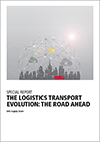
The Logistics Transport Evolution: The Road Ahead
Now more than ever, ground transportation is a strategic component of business success as seen by respondents to a worldwide survey conducted by DHL Supply Chain. Three quarters of companies surveyed indicated that investing in improving ground transportation will positively impact their sales, and they are willing to pay for and partner with 3PLs for value-added services that can show a measurable ROI.
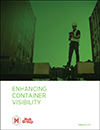
Enhancing Container Visibility
To increase savings, business leaders must concentrate on the total cost of the supply chain, rather than just transportation prices. The right company acts like a business partner and takes into consideration transportation, operations and inventory costs to help a network operate more efficiently. What is your transportation and logistics provider doing for you? What should they be doing?

4 Signs It’s Time For a New WMS
Whether your warehouse is just getting by with paper or spreadsheets, or you’re already considering making a change, how do you really know when it’s time for a new WMS? Read the white paper from Snapfulfil to learn four key signs it may be time to upgrade to the next generation of warehouse management systems.

An Inside Look at Drop Shipping
Retailers that expand their item assortment can dramatically increase customer satisfaction and sales. Vendor drop shipping enables retailers to easily add and test SKUs – without taking on additional inventory carrying costs. Read our white paper to find out how to develop an optimal vendor drop ship strategy and how to enable ship from vendor – in a matter of months!

5 Tips for Improving U.S./Canadian Border Clearance Efficiency
Download this new whitepaper to learn about:
Underestimating Border Clearance Processes. The border customs requirements and mandates have been streamlined and simplified in recent years so many businesses assume it can’t be that complicated…until they realize even a small mistake can lead to big delays.
The Most Common Mistakes. Misclassification of goods is among the top reasons for delays. Examples include: Miscalculating the shipment worth, misstating the shipment origin, and misclassifying the shipment tariff.

Navigating the New Trucking Landscape
Shippers are up against serious challenges in 2018. Numerous factors are combining to make it difficult for manufacturers and retailers to achieve the increased volume, speed and accuracy demanded by our booming economy. Put simply, constrained capacity has turned transportation into a pain point for many shippers. It’s a story we’ve heard before, but this time it’s worse than ever. The goal of this White Paper is to not only provide a deeper understanding of the causes of the situation, but also to outline ideas you can apply to your own logistics operation. With a fresh perspective and new information, you’ll be able to propose and implement solutions that can turn the situation around, and even contribute to supply chain efficiencies in areas beyond transportation alone.

Taking the Next Step and Gain Total Control of Your Supply Chain
TMS has been around for more than 20 years, but supply chain complexity and rapidly evolving technology is driving organizations to seek the next level of logistics and supply chain performance. A real-time, network-based control tower is a proven way to achieve new levels of efficiency and performance. But how do you get from where you are, to where you need to go? Find out where you are in your journey with the quick Control Tower Assessment.

How Do I Ship a Lithium Battery?
For shippers, this complexity and endless change result in hundreds, if not thousands, of man-hours spent searching for specific standards that apply to a given battery shipment. Cut through the confusion! Before you even think about shipping your battery, answer these four simple questions to help you determine how to safely prepare your shipment for transport.
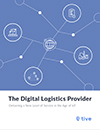
The Digital Logistics Provider: Delivering a New Level of Service in the Age of IoT
As supply chains grow ever more complex, Logistics Service Providers (LSPs) are embracing digital supply chain solutions powered by IoT technologies and data analytics. With a digital supply chain, today’s LSPs are able to stay ahead of the game, informing their customers as soon as problems occur and leveraging data-driven insights to optimize from end to end. To learn more about how to stay competitive in the age of IoT, download the white paper.

Roadmap to Savings
Have you heard the one about the family who found $5,000 in coins hidden away in their couch? If only saving money in business were as easy as rummaging through overlooked areas and finding hidden caches of fortune. Actually, with a little creative thinking and refined analysis, your company can do just that. In this white paper, Optimum Expenditures Group LLC uses a specific case study to demonstrate how they were able to help one company save almost 20% off their freight spending budget by simply analyzing various aspects of their supply chainís transportation spending. By asking pointed questions and evaluating both obvious and hidden challenges, they were able to design a financial roadmap that was unique to this specific company. Download now to learn more and find out how Optimum can help you find extra savings.
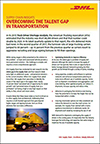
Overcoming the Talent Gap in Transportation
Research suggests the potential for a truck driver shortage of 96,000 by 2020. While raising wages is often presented as a solution – at least until automated vehicles reach commercial viability – the challenge is complex and requires a multi-faceted approach that goes beyond higher wages and signing bonuses. In this paper DHL Supply Chain offers three solutions that can make a difference.

Everything Past the Click
When establishing your eCommerce store, it may be difficult to find time to do all the tasks that are most important—like providing customer service, marketing, packaging, shipping, order fulfillment, and other store elements. In this white paper, youíll learn how to optimize your online presence, find time for shipping and fulfillment, and most importantly, how a 3PL can help you to amplify your sales.

Proper Tariff Classification – A Vital Part of Customs Compliance
Every product entering or leaving the U.S. must have a tariff classification code. It’s a number that identifies the product at a glance. Seems simple, right? It’s part of the Harmonized System with pretty much the whole world in compliance. The problem is that it’s not always easy to determine exactly which one of 9,000+ tariff classification codes applies to a given product. Get it wrong and the border becomes a blockade. Or, worse, you’ve left reduced tariffs on the table due to trade agreements. Or, equally as unpleasant, you just plain overpaid and don’t even know it. Download the new white paper Proper Tariff Classification – A Vital Part of Customs Compliance to help your business better understand the classification system and its role in ensuring proper compliance.

Logistics Network Analysis
Logistics network analysis gets beyond the marketing hype to see whatís really happening throughout your power-gen supply chain. A detailed look at your network and how each segment and carrier performs helps you identify opportunities for improvement and predict performance so you can mitigate potential problems. To learn how to save time and money in your supply chain, download our Logistics Network Analysis whitepaper.
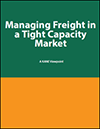
Managing Freight in a Tight Capacity Market
In this seller’s market for freight, carriers are more selective than ever about the loads they haul. To position your business as a ìshipper of choiceî for carriers, download our free eBook and learn 7 bold steps shippers can take to ensure you can get the freight capacity you need.
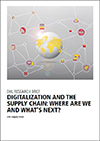
Digitalization and the Supply Chain: Where Are We and What’s Next?
Digitalization in the supply chain is happening fast and it’s difficult to keep pace. Disruptive technologies – e.g., next-generation robotics and autonomous vehicles – now integrate with big data analytics, sensors, blockchain and other virtual applications. The opportunities are endless but where are companies on their supply chain digitalization journey? DHL Supply Chain surveyed supply chain and operations professionals around the world to find out.

How Supply Chain Design Leads to Successful Merger and Acquisition Activities
Consolidations across industries have forced companies to rethink their supply chains. Mergers and acquisitions come with a huge amount of risk, and by optimizing your current and future supply chain you will significantly reduce risk and provide a data-driven roadmap for success. By optimizing the current and future supply chain you will significantly reduce risk and provide a data-driven roadmap for success. Download this ebook to learn where you can leverage modeling across all stages and types of M&A activity including: pre-merger, post-merger, divestiture/spin-off, and brand/product line acquisition.
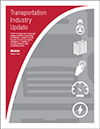
Transportation Industry Update
In 2018, the transportation industry must navigate a confluence of opportunities and challenges—regulatory pressures, innovative disruptions and changing marketplaces—to capitalize on increasing demand for freight and tightening capacity. Download this whitepaper for a detailed look at these challenges and suggestions for overcoming them.

The Business Case for Transportation Management
To meet continually changing consumer demands and expectations in an increasingly competitive market, shippers need a fast, efficient supply chain. Fortunately, as the supply chain has evolved, so too have transportation management systems (TMS) – now providing organizations with greater visibility and control over their supply chain than ever before. Download this new whitepaper to examine how transportation management solutions can help your company reduce risk, improve operational efficiency, and drive meaningful change within your organization.

Radburro: The Built-For-Business Etrike
To meet today’s logistics challenges including urban congestion and lack of parking, rising fuels costs, and consumer expectations for delivery speed, forward-thinking companies are adopting cutting-edge e-cargo solutions, such as the RadBurro, an enterprise-ready mobility and logistics etrike. Featuring 700 pounds of cargo capacity and an estimated 40-80 mile range per charge, the RadBurro offers best-in-class capacity, durability, and battery life. Download this free brochure to learn more.
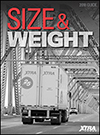
2018 Size & Weight Guide
Here’s a free reference guide containing state-by-state listings of size and weight regulations. XTRA Lease annually produces this free guide to provide fleets with the most up-to-date resource material for managing size and weight legal limitations. In addition, the guide offers details for where to: register for fuel use tax and order International Fuel Tax Agreement (IFTA) trip permits, register vehicles and order International Registration Plan (IRP) trip permits, register for Unified Carrier Registration Agreement (UCRA), get hazardous materials/waste permits, and get overweight, oversize permits. The guide provides contact information for state trucking associations and also includes a convenient quick reference chart for all states.

Understanding Customs: Anti-Dumping and Countervailing
The current administration has made it clear that "dumping the exporting of goods and manufactured materials into the United States at below fair-trade value will not be tolerated." As a result, more importers will be caught with unwelcome tariffs that may double the cost of items imported. The responsibility for dumping tariffs will fall on the importer, so it’s critical to partner with a logistics provider that has the resources, experience, and customs expertise to navigate these sometimes very tricky waters. Download this whitepaper to understand the subject, and determine your potential liability.
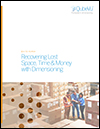
Recovering Lost Space, Time & Money with Dimensioning
Warehouses, distributors, e-com fulfillment centers and shippers are looking for every edge. They’re discovering that dimensioning their inbound and outbound streams maximizes warehouse capacity (20%+), increases operational efficiency (35%), and reduces material and shipping costs (9% or more). The bottom line: If you receive, store, pick, pack, ship, or transport, dimensioning is an easy way to save money. This guide will get you started.

Is Your Business Falling Behind in the Parcel Shipping Race?
Fast and free shipping is the new normal in e-commerce, and Amazon continues to set the pace. How can you keep up? Find the answers in Pierbridge’s latest free e-book: “It Takes an Enterprise to Control Parcel Spending.” Download today to learn how Parcel TMS software can help your business control costs by:
- Improving parcel planning with an enterprise software approach.
- Shipping with total control.
- Utilizing advanced analytics to normalize and store information to gain a complete picture of transportation activity.
- and more.
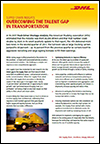
Overcoming the Talent Gap in Transportation
Research suggests the potential for a truck driver shortage of 96,000 by 2020. While raising wages is often presented as a solution – at least until automated vehicles reach commercial viability – the challenge is complex and requires a multi-faceted approach that goes beyond higher wages and signing bonuses. In this paper DHL Supply Chain offers three solutions that can make a difference.

Hey Pallet Geeks! Which Pallet Type is Best for You?
This whitepaper discusses the functionality characteristics of two wood-based pallet types, but are made from distinctive processes. The pallets are compared for use in one-way shipping include; the innovative 48" x 40" Engineered Molded Wood pallet made with high heat and pressure and the established 48" x 40" GMA-Style pallet made from wood slats and nails. Learn how pallet strength, stiffness and other functionality characteristics impact supply chain efficiencies.
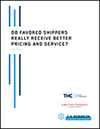
Do "Favored Shippers" Really Receive Better Pricing and Service?
Anecdotal evidence and some qualitative research suggests that "favored shippers"—companies for which carriers prefer to haul freight—obtain better pricing and service. But do they? In this paper, Iowa State University researchers explain h, ow they sought to understand the voice of U.S. truckload carriers, how they quantitatively measured the effects of "favored shipper" characteristics on transportation costs, and what characteristics actually make shippers favored in the transportation marketplace.

The Right ELD
With the ELD mandate now in place, do you know which device is right for you? This eBook explores the top concerns fleet managers face today and how to not only comply, but also drive profitability when deciding on an ELD device. Topics include evaluating and choosing the right ELD, driver training, ELD installation, reliability and security, and more.

Find the Money: How a Transportation Spend Diagram Can Help
Transportation leaders are constantly looking for ways to reduce costs while improving service levels as they conduct strategic assessments. Using the Spend Diagram to document freight flows and costs on a single page is the best way for a transportation team to collect data and focus their efforts. Read enVista’s whitepaper to learn how a Spend Diagram can identify savings opportunities throughout your transportation operations.
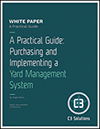
Purchasing and Implementing a Yard Management System
You will find everything you need to know about purchasing and implementing a Yard Management System in this practical guide. It aims to help inform the decision to implement a YMS–from investigation to scoping to vendor selection and implementation. The whitepaper covers: who needs a Yard Management System, specific areas where YMS can optimize operations, what to look for when evaluating a YMS, vendor evaluation checklist, ROI considerations, and a blueprint for successful implementation.

Winning the Battle for eCommerce Last-Mile Excellence
Amazon is driving consumer delivery expectations. Their delivery services are not just the gold standard, they re THE standard by which other retailers are judged. Amazon is the reason people now think 2-day-and-under delivery times are no longer expedited service; they re expected service. So what ‘s a retailer not named Amazon to do? Make your last mile your best mile. Last-mile service is truly the make-or-break part of a transaction. When a customer is either pleased with delivery services or disappointed if something goes wrong, the appreciation (or the blame) goes not to the logistics provider but to the retailer. There are a host of options and strategies to improve last-mile service, but to make your last-mile service a true competitive advantage, you ll need two things: technology and the right logistics provider. Find out more by downloading this free whitepaper.

Examination of On-Time Delivery Service in a JIT Environment
Adopting just-in-time (JIT) inventory principles has enhanced production operational efficiency, cost effectiveness and customer responsiveness for many organizations. But the real key to success is providing a solution that applies JIT principles to the specifics of each client’s industry and accurately tracks and delivers on-time performance, regardless of industry conditions, leading to the greatest competitive advantage.

Think Like a Big Shipper
Many small and mid-sized shippers suffer from the mindset of, “I’m not Walmart.” This approach assumes that size and sophistication are necessary to achieve meaningful transportation costs savings. However, shippers of all sizes can always develop and implement strategies that have a return on investment. You don’t have to be a big shipper to obtain similar savings – simply think and act like one. Read this whitepaper to learn more.
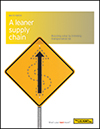
A Leaner Supply Chain
Supply chains are inherently complex and interconnected. And the greater the number of products produced or destinations for goods, the greater the potential for complexity and the greater the necessity for systematic, enterprise-level approaches to preserve value for the company at every link in the supply chain. Download this whitepaper to discover how a more integrated supply chain can contribute value to your company.

Safety in Logistics Operations
In logistics, the commitment to safety is too often like the half-hearted embrace we give an older aunt we occasionally see at family gatherings. We do it because we have to and it’s expected. But we’re not giving safety the full-on bear-hug it deserves. This eBook examines safety investments from an ROI perspective, and then offers up 4 strategies to improve safety performance in your logistics operation.
The Evolving Freight Forwarding Market (2017)
Digitization is the future for freight forwarders, according to the results of a survey conducted in April 2017 and based on 80 responses. This whitepaper details those results, including how the freight forwarding market is being redefined, critical pain points, what customers value most from their forwarders, market share changes, and more. Technology is leading the way for supply chains and forwarders have taken note: according to the survey, digitization is not a "nice to have" but a "need to have" for all supply chains.
Blueprint 2032: How Technology Transforms Ocean Container Shipping
Digitization is rapidly transforming the ocean container shipping industry and the pace of technology innovation is accelerating as businesses seek new and more efficient ways to optimize, according to this new whitepaper. INTTRA sees three technology trends converging near term that will move the ocean container shipping industry forward: Network integration across systems, applications and partners; real-time status of containers and cargo; and artificial intelligence that will enable companies to transition from big data to more accessible business analytics that will suggest higher probability outcomes. INTTRA also outlines several actions that will prepare shippers for the future, including participation in industry-wide working groups to enable standardization; digitizing business processes; and investing in technology to reduce costs and identify new opportunities.

New Supply Chain Technology Best Practices
The purpose of this paper is to provide the reader with information about five new innovative technologies that could greatly impact the supply chain: drones, 3-D printing, driverless vehicles, robotics, and wearable technology. The paper delves into the many benefits of each technology as well as some challenges and gives the reader a peek into an amazing future.
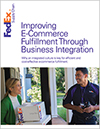
Improving E-Commerce Fulfillment Through Business Integration
Business integration plays a key role in preparing fulfillment operations for efficiently handling e-commerce orders — far ahead of the click and order confirmation. In this white paper, experts from the fields of retail, marketing and supply chain management discuss how an integrated approach to marketing and logistics can help organizations fully embrace e-commerce and increase profitability.
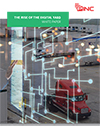
The Rise of the Digital Yard
Is your yard ready to join the digital revolution? With the millions of trailers nationwide sitting idle and unhooked 80 percent of the time, it’s time to take the yard out of the dark ages and into the digital world. What are digital yards? What does the digital yard mean to the entire supply chain? How do you build the business case and get started? Explore these questions and more in this new whitepaper.

Why Freight Visibility is Important
The global supply chain is always moving, but when it isn’t, it is everyone’s problem. Goods in various stages must be transported to and from raw materials suppliers, manufacturers, wholesale distributors, retailers, and end users. One hiccup can affect everyone in the logistics sector, thus the term “supply chain”. Download this whitepaper to learn the consequences of late loads, undeniable importance of freight visibility, how real-time visibility enables exception management, and what to look for in a visibility partner.

Global Visibility Through a Network Control Tower
In an industry where many logistics providers claim to deliver global visibility, the service frequently delivers little value to the shipper and little else to distinguish the provider from the services rendered within a standard TMS. In this whitepaper, you’ll discover the process of implementing a control tower, its benefits and common pitfalls to avoid.

Now is the Time for a TMS Heres Why
Deploying a Transportation Management System (TMS) can provide many benefits as companies seek to optimize their shipping management, including improved transportation planning, increased execution accuracy, and greater shipment visibility. Read enVista’s white paper to find out why now is the time for a TMS.

Game Changer – Transportation Spend Intelligence
Best-in-class analytics can transform transportation cost data into an advantage for any company. Analytics can eliminate the pain involved with managing raw transportation data and converting it into actionable intelligence – reducing the time required to produce analyses or take action. But with such promise comes hype, making it difficult to distinguish between solutions. In this whitepaper, you’ll learn what a best-in-class transportation spend analytics solution should deliver.
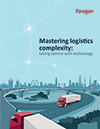
Mastering logistics complexity: taking control with technology
Very few, if any, logistics planning operations are simple to plan. As customer demands grow and congestion and legislation increases, the variables that transportation planners have to juggle become more complex. Read our white paper to find out how harnessing the latest technology will not only help transportation planners manage these complexities but also turn them to your competitive advantage.
